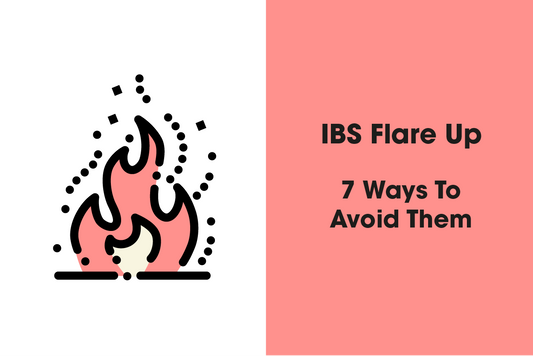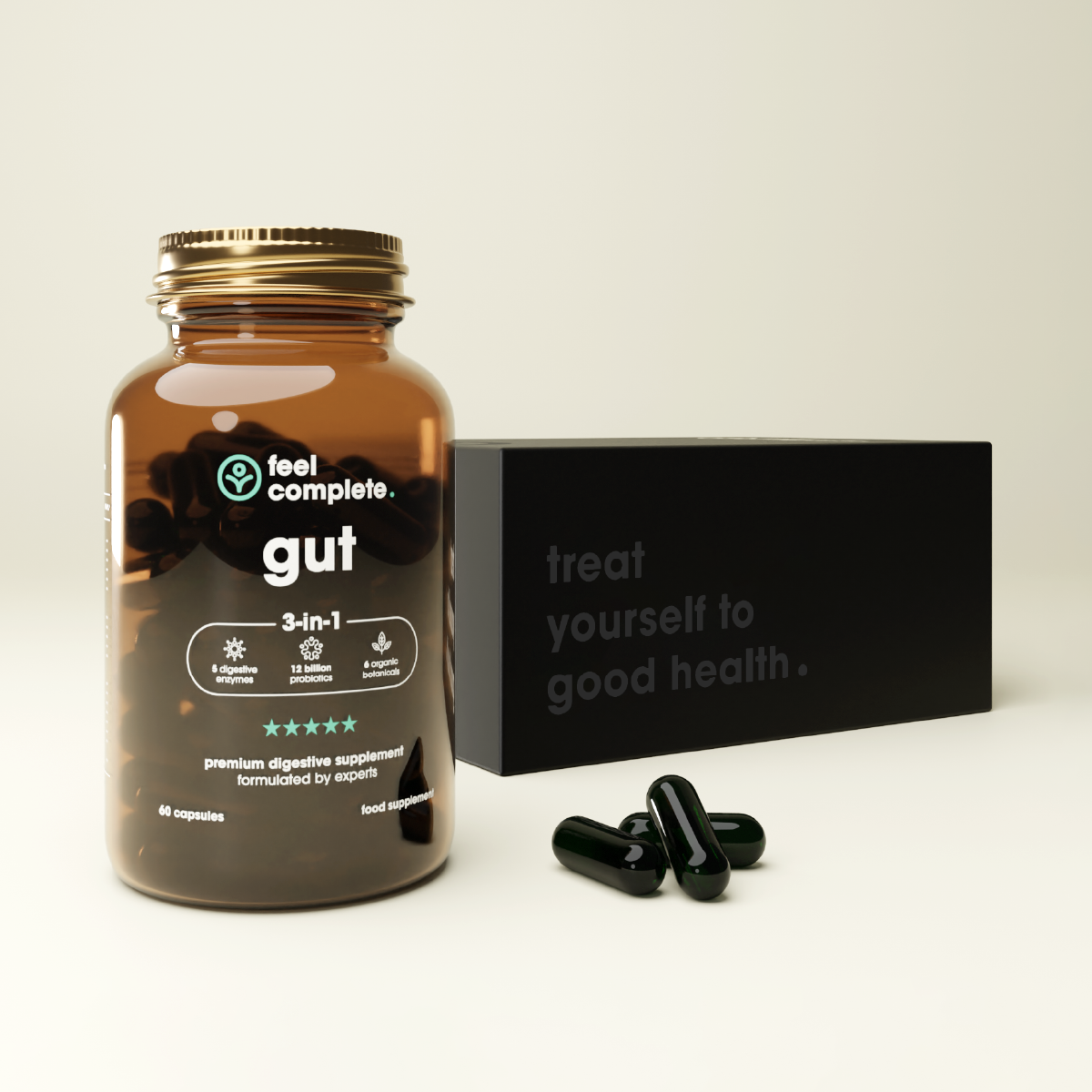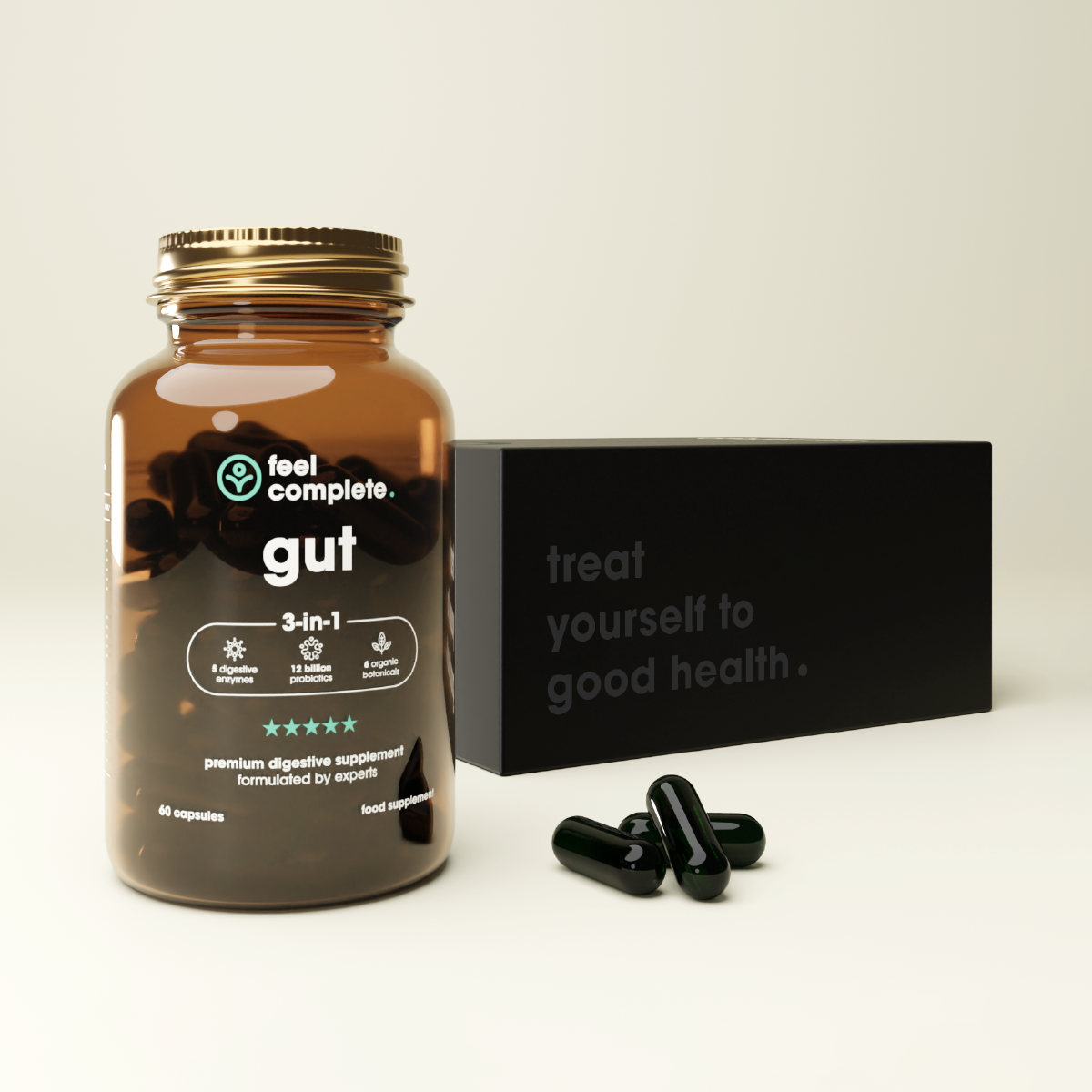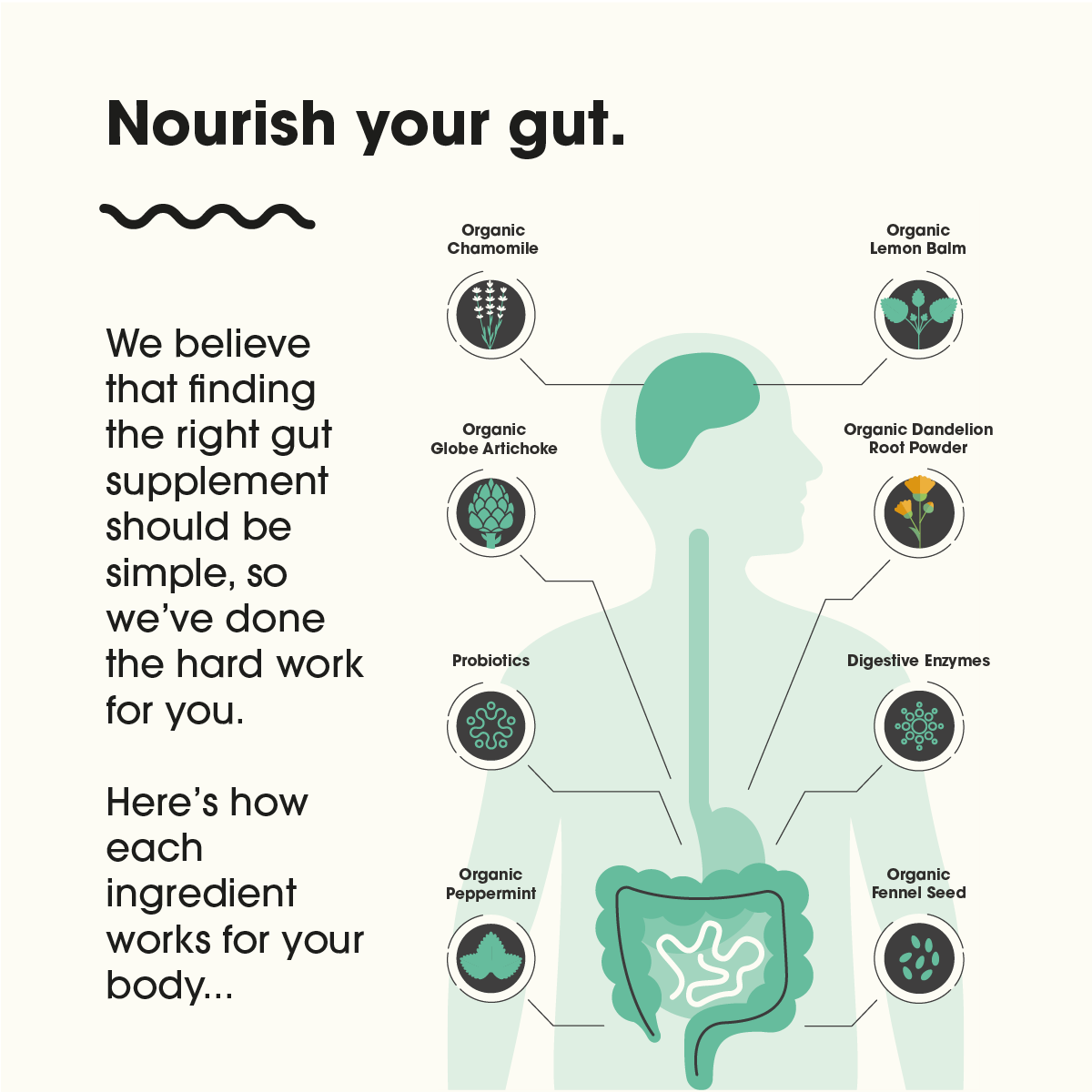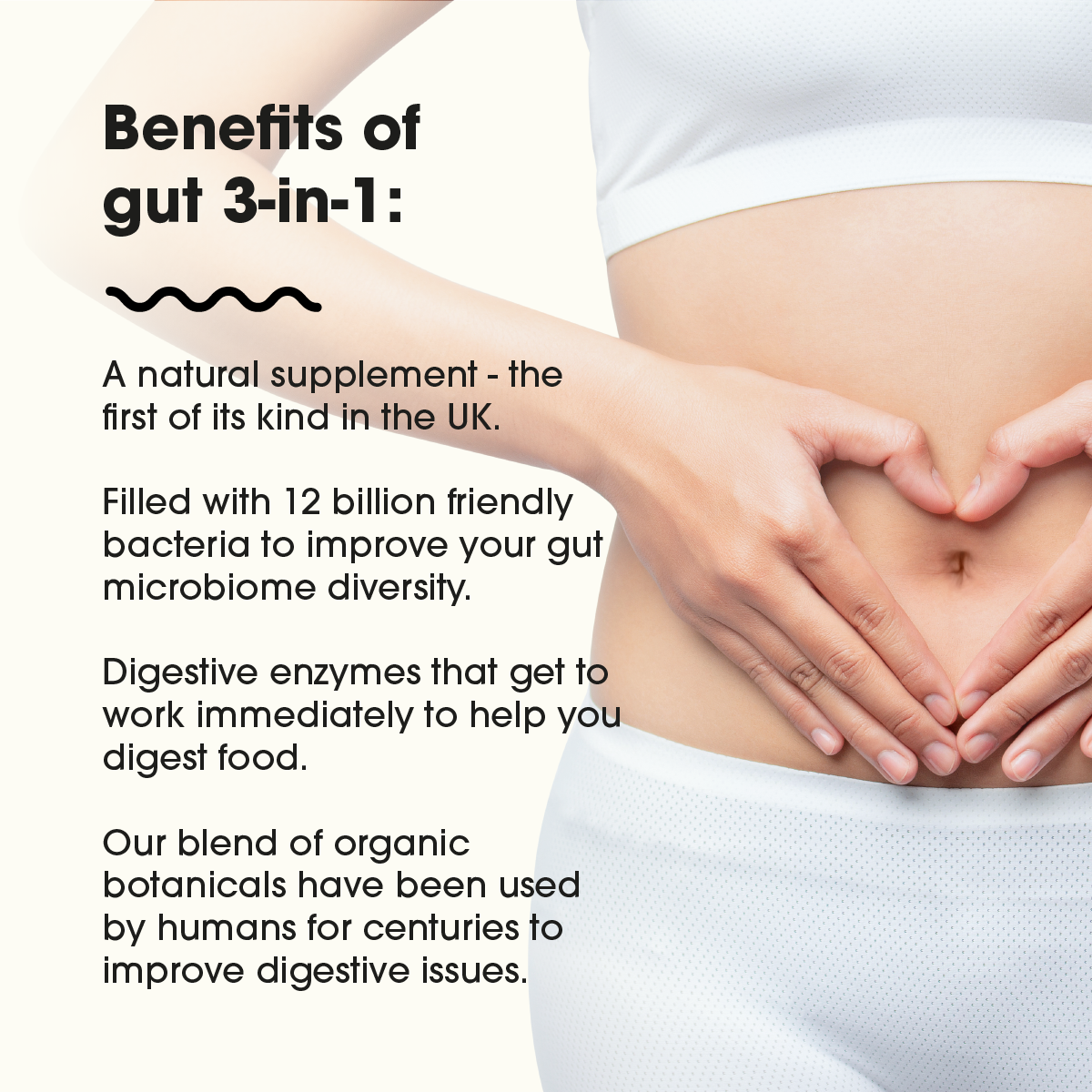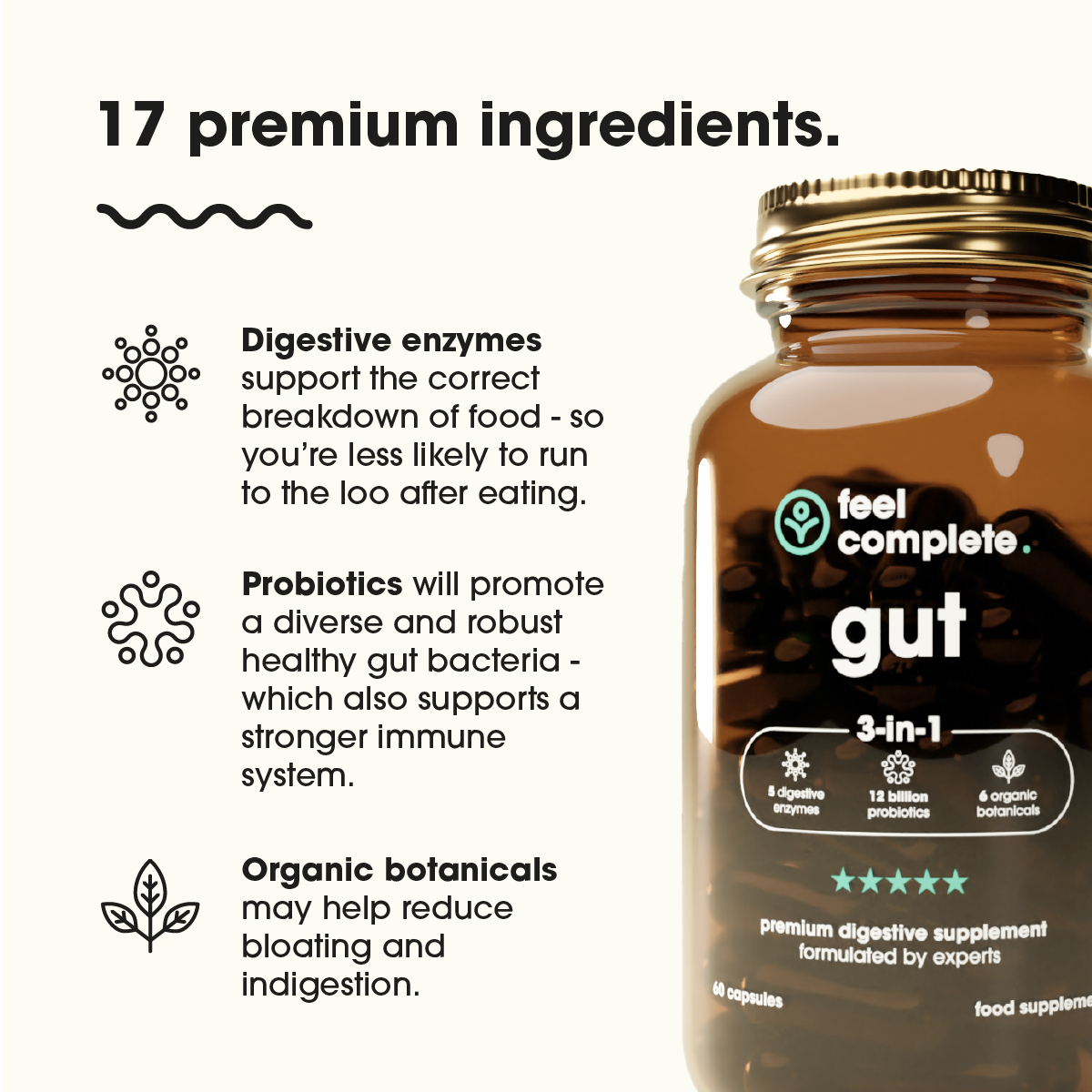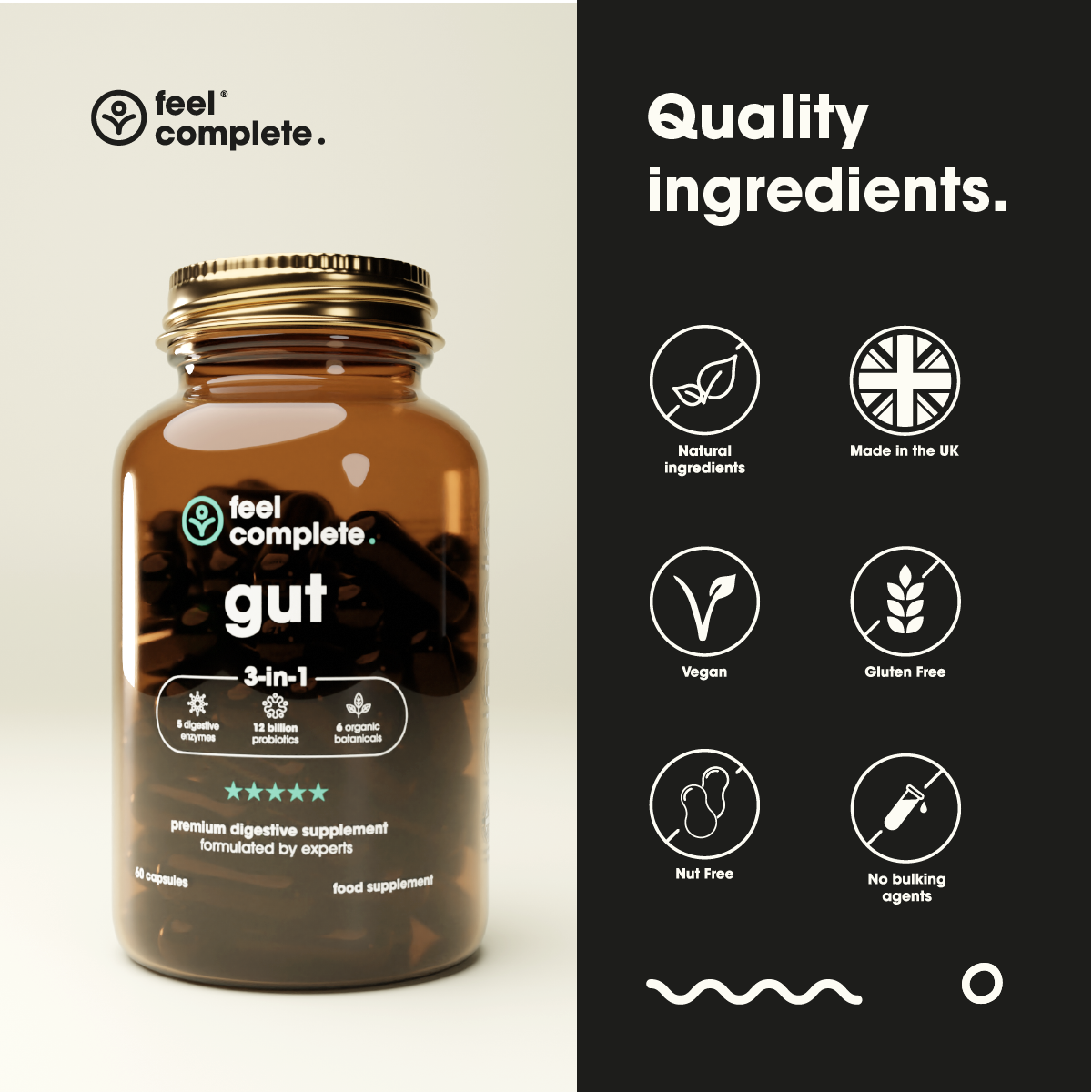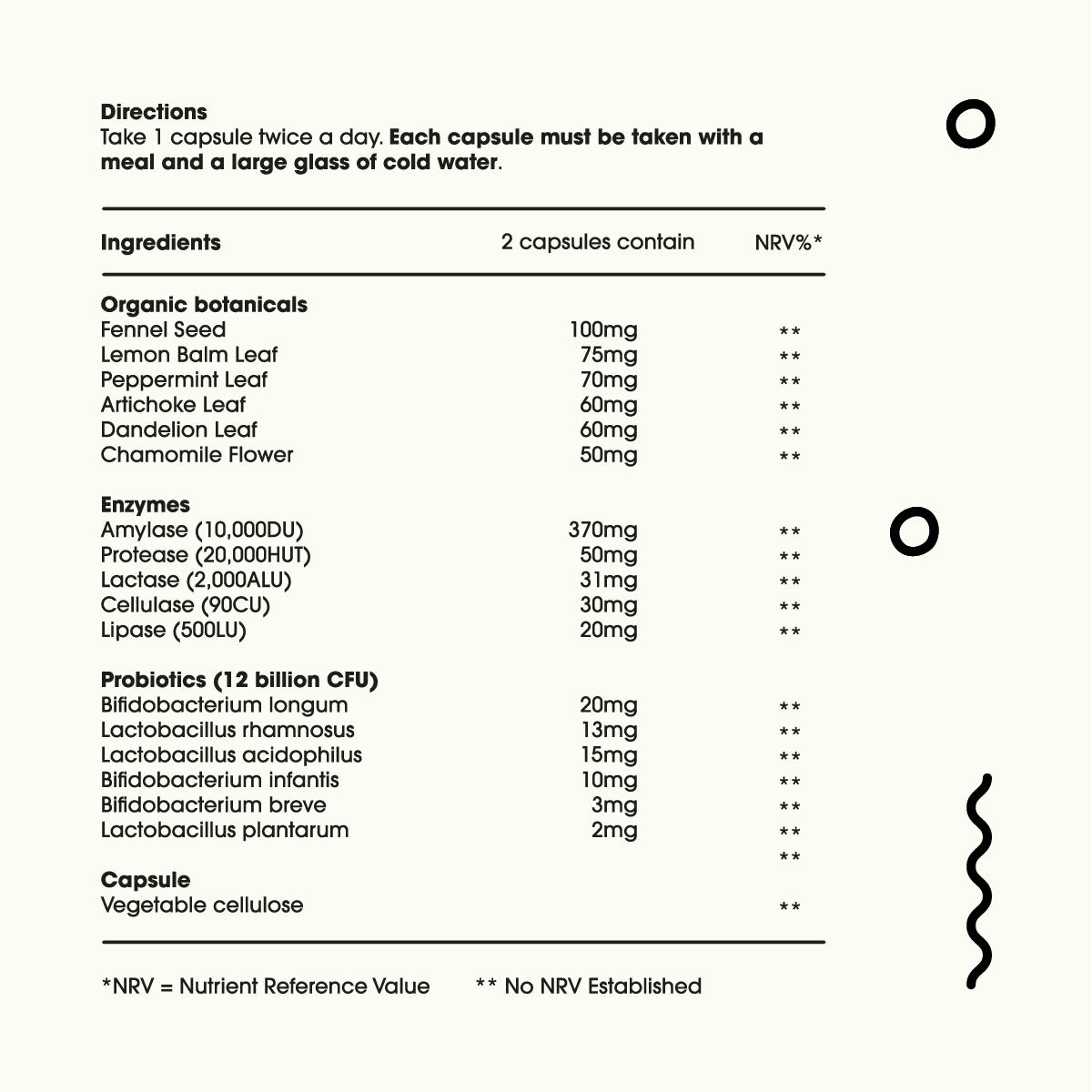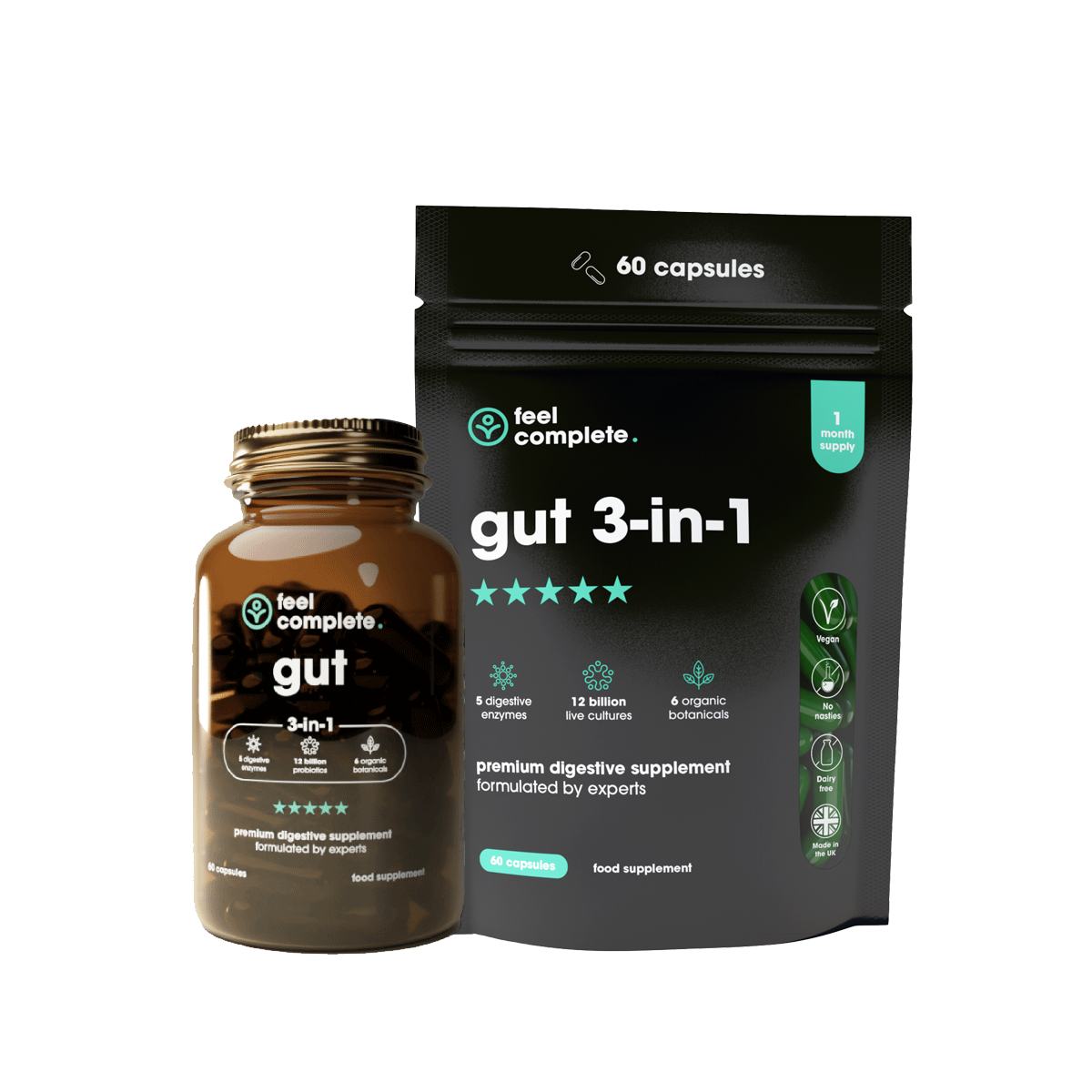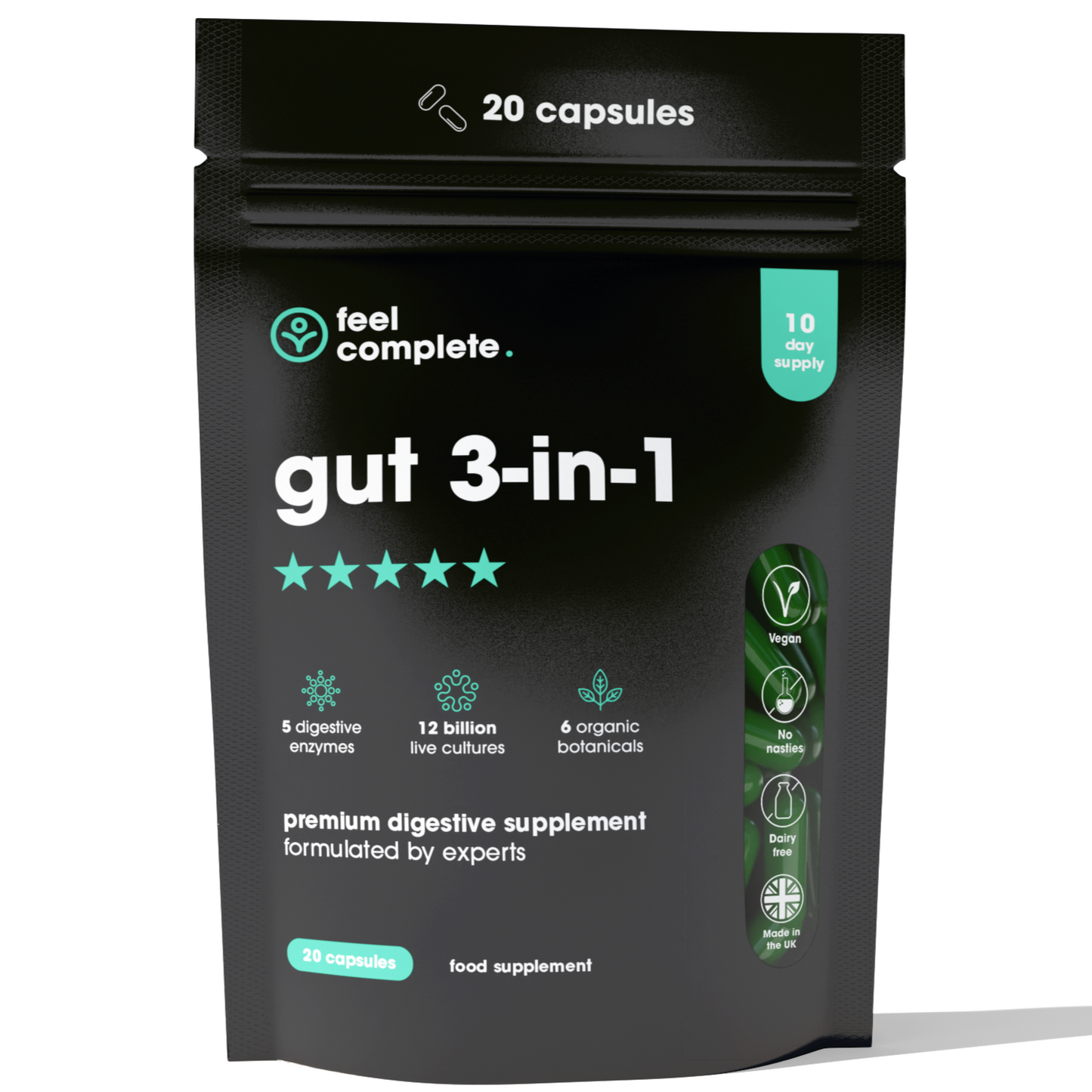Did you know that allergies, especially food allergies, are pretty common in the UK?About 44% of adults and 50% of children in the UK have one or more allergies. Out of those, around 2% of adults and 8% of children have a food allergy.
This means that you or someone you know has some kind of allergy. Scary, no?
But here's the thing. What most of us don't know is that there is a clear link between seasonal and food allergies and gut health.
Wondering how? Consider the immune system. Roughly 70% of our body’s defence i.e. the immune system is in our gut. To defend itself against foreign substances (allergens in this case), your immune system needs to be strong and healthy.
Speak to a nutritionist here
What are allergies?
Allergies are often the result of the immune system overreacting to harmless things in our environment such as cat or dog hair or pollen (causing hay fever) or to certain foods such as lactose or nuts.
These reactions can be the result of a weak immune system, which the body has a hard time dealing with.
In this article, we want to focus on negative food related reactions and how the immune system or your digestive system are often behind these reactions.
Allergies vs intolerances explained
Not all reactions to food are allergies, Many people confuse food intolerances (often called sensitivities) for food allergies. And they possibly jump to the conclusion that they are allergic to a certain food too quickly, leading them to unnecessarily restrict their diet.
To avoid this confusion, we'll break down these differences so that by the time you finish reading this article, you'll be an expert in distinguishing between them!
Food allergy symptoms
A food allergy is a reaction that occurs when your immune system negatively reacts to proteins found in certain foods. As your immune system treats these as a threat, it causes a reaction, which we know as food allergy. The signs and symptoms of food allergy include:
- Abdominal pain
- Vomiting, nausea
- Diarrhoea
- Swelling
- Skin rash
- Tingling or itching in the mouth
- Cold like symptoms- sneezing, congestion, cough, wheezing
- Difficulty breathing- breath (wheezing),
You may experience or notice these symptoms right away or up to 2 hours after exposure. There is also a severe and potentially life threatening reaction called Anaphylaxis.
Symptoms of anaphylaxis include:
- Breathing difficulties
- Dizziness
- Severe swelling to the lips, throat and hands
This reaction happens immediately, which means you'll know right away that it's serious.
Gut health and allergies
So now you may be asking yourself a very valid question, "How is gut health linked to allergies?"
Many studies show that a decline in the health of the gut microbiome seems to be linked to developing food allergies. The gut microbiome is home to the trillions of microorganisms that live in our digestive tract.
Like any city or town, you have a population of good bacteria and bad bacteria as well as beneficial and non-beneficial yeasts. And there are many studies confirming this link between microorganisms in our gut and allergies.
Food intolerance
So how is a food allergy different from food intolerance? You already know that when it comes to food allergies, the immune system is involved.
With food intolerance, however, your gut is involved. To understand the difference, imagine that you've just had a lovely meal. But maybe 5 or 10 hours after this meal or even a day, you start feeling strange.
You may not right away connect what you're feeling with what you ate hours or a day earlier.
Here are some of the symptoms you may experience:
- Abdominal pain
- Nausea
- Upset stomach
- Gas and bloating
- Diarrhoea
- Heartburn
- Headache or migraine
These are all signs of food intolerance and these symptoms show that your gut is poorly reacting to certain foods. This could be due to your body struggling to digest food or certain foods irritating your gut. In this case, the symptoms you experience don't involve an immune response but simply a gut reaction.
In other words, food intolerance only affects the digestive system, which means it doesn't cause serious symptoms. In addition, the reaction caused by food intolerance is more gradual than the symptoms of a food allergy and may last for days.
Common food intolerances
So what exactly causes food intolerances? Great question! The first one is histamine. This is one we see in our nutrition clinic a lot and normally comes as a surprise to many. What does it even mean?!
Histamine is a chemical that's produced by the body and its role is in several important functions. These include digestion, regulating blood pressure, and immune response. However, when histamine levels become too high, the symptoms show as:
- Coughing
- Wheezing
- Watery eyes
- Headaches
- Inflammation
If you experience some of the common symptoms associated with histamine intolerance (high levels of histamine), here are a few diet and lifestyle changes you can make.
Diet changes
To help with your symptoms, you'd want to remove certain foods from your diet.
Here's what this looks like:
High-histamine foods: The first thing you want to remove are a few high-histamine foods including pickles, vinegar, eggplants, avocados, and citrus fruit. You also want to remove ultra-processed foods including salami, prosciutto, chorizo and bacon, and tomato ketchup. Other foods that are high in histamine include dairy products, alcohol, and fish (frozen, salted or tinned like sardines and tuna, shellfish).
Lactose: Very common as many lack enzyme lactase, which support the breakdown of this sugar. Try replacing this with lactose-free. You can also try a lactase enzyme supplement equivalent to 4500 FCC LU*.
Gluten: Another one that is common but that many people think is gluten. However, often times it's not gluten but the added oils, artificial sweeteners, and preservatives you see in many breads. So the real issue is in these ingredients and not gluten itself. If you do think it's an issue we would recommend a celiac test to see as it's very important to control celiac through correct diet changes.
If your test isn't positive, then our experts recommend that you simply replace gluten-rich products with more whole foods that have gluten. In other words, not bread from the supermarket or bakery but homemade bread such as sourdough or homemade scones, cookies, etc. Also replace cereal which is ultra processed for whole oats, barley or quinoa.
Final thoughts on food allergy vs food intolerance
Due to the common confusion between food allergies and food intolerance, many people assume that they have food allergies and as a result, remove many foods from their diet. This can be serious as it leads to nutrient deficiencies especially since they don't know the cause of their reaction.
Remember, a food allergy is much more severe and usually comes on suddenly and can be triggered by a very small amount of food causing allergy symptoms.
A food intolerance, however, is far less serious and its symptoms are often gradual.
Lastly, keep in mind that while some of the symptoms of food allergy and food intolerance (such as abdominal pain) overlap, the difference between these two are huge.
In short, food allergy is a reaction caused by the immune system and can be life-threatening. As for food intolerance, this is a reaction caused by the digestive system and is thus less dangerous.
-
Food allergy fact: Food allergies are rare. Roughly between 1-2% of adults have food allergies
-
Food intolerance fact: Around 20% of adults have food intolerances
How to reduce your risk of developing allergies
A poor diet, stress, some medications and lifestyle factors can all contribute to developing allergies. To reduce your risk of developing allergies, it's important to look after your gut health in different ways as food allergies are linked to what happens in the gut microbiome.
Remember, if your gut health is compromised, so is your immune and overall health. So what can you do exactly?
There are a lot of things
you can do to optimise your health, and we know that this can at times feel overwhelming. We also know that life keeps us all busy to pay attention to our diet and lifestyle choices all the time.
But the good news is that you're not alone. If you're tired of your allergies and want to optimise your health and build a strong immune system as a result, you can work with one our nutritionists. Not only are they easy to talk to, but they
're are also trained to simplify healthy eating and living so you can reach your health goals.
Want to know what that's like? Once you're assigned a nutritionist, you will have a private 1-1 consultation where you'll get to the root problem of your gut issue and allergy/intolerance. This includes diving deep into you, your history, family genetic connections, your medication history, stress, movement and of course what you eat.
All this is used to create a personal programme to help you heal. With the help of a professional, the journey to healing your gut will be full of guidance and support so that you won't have to guess or be confused. If you're ready for this life-changing experience, choose the option that's right for you
here and start feeling the difference!
Top tips
You now know that a healthy gut microbiome will reduce your risk of allergies so here are a few ways to achieve this.
- Cut out processed foods
- Eat diverse plant foods, (think rainbow)
- Probiotics/fermented foods
- Sleep - aim for at least 7-8 hours a night
- Movement - brisk walking, swimming, hiking, jogging, anything to help your body move and make your gut happy
- Eat a wide variety of foods (less variety more likely to develop allergies)
- Spend time in nature (the countryside is great for that!). Encourage children to get dirty! Pets, dirt etc make for a healthy microbiome and build a strong immune system
Probiotics
Did you know that probiotics are your gut's best friend? Research shows that probiotics are helpful for reducing seasonal rhinitis symptoms (hay fever), and may have an important role in the prevention and treatment of allergic rhinitis. This is because a diverse and strong gut microbiome helps reduce the impact of allergies.
Look for ones that contain Lactobacillus acidophilus, L. casei, L. salivarius, L. lactis, B. bifidum, B. infantis or Lactobacillus rhamnosus LGG and L. gasseri.
Elimination diets
In the past, doctors used to advise that we should avoid giving babies certain foods under the age of 1, such as peanuts, eggs, and fish, believing this would prevent food allergies later on.
But guess what? We know now that by doing that, this could have actually had the opposite effect of inducing allergies. Current recommendations are that introducing a wide range of foods early (4-6 months of age) reduces the risk of developing food allergies (
5,
6,
7,
8).
Food for thought? Eliminating certain foods isn't the solution to allergies. The key is to understand your gut and what's causing you to have a negative reaction. Once the root cause is identified, then the journey to healing your gut (and immune system) can begin. The result? A healthy gut and immune system that can eat diverse foods without having negative reactions.
It may sound like a dream but it
's possible with the right diet and lifestyle changes!
Fun fact: Did you know that children who are brought up in the countryside are less likely to develop allergies? We
'll leave it at that!







